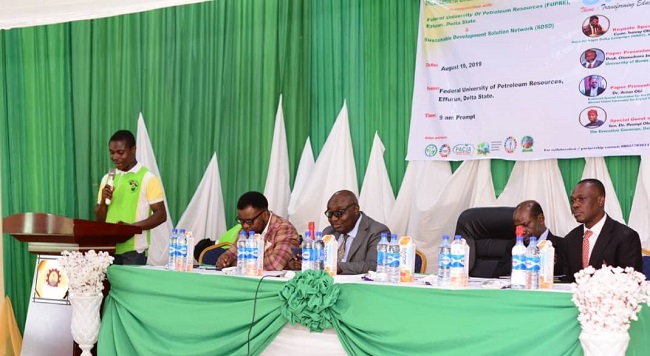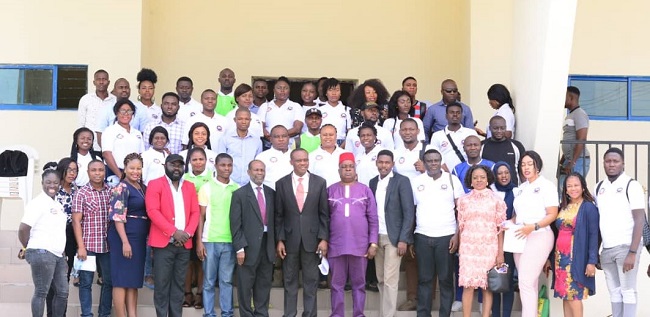Youth involvement and participation in governance is key to current global leadership crises and societal development. And one tool for its actualisation is education which is a lifelong learning process.

This takeaway from a recent event also form the theme of the 2019 United Nations International Youth Day commemoration: “Transforming Education”. It is described as a programme rooted in Sustainable Development Goal 4 (Quality Education), however with discuss cutting across Goals 5 (Gender Equality), 13 (Climate Action) and 17 (Strong Institutional Partnership).
A civil society organisation, African Centre for Climate Actions and Rural Development (ACCARD) Initiative, led a collaboration involving Federal University of Petroleum Resource (FUPRE), Climate and Sustainable Development Network (CSDevNet), EnviroNews Development Network (Endenet), SDG Radio and Centre for Environment and Sustainable Livelihood Project (CESLP), to an event in Delta State on August19, 2019 at FUPRE, Effurun Warri, Delta State.

While Prof. Olomukoro John Ovie presented a paper on “Youth role in Climate and Environmental Management”, Dr. Amos Obi spoke on “Prescription for Transforming 21st Century Educational System”. Comrade Sunny Ofehe, a social and environmental right activist and the Executive Director of the Hope for the Niger Delta Campaign (HNDC) Netherlands was the keynote speaker.
They highlighted the widening gap in youth educational development, and how youth by themselves can integrate knowledge from both academic and vocational learning into future management of Nigeria and Africa’s economy.
The acting Vice Chancellor of FUPRE, Prof. Akpofure Rim-Rukeh, while declaring the event open, clamoured for a holistic improvement of the Nigeria educational system by recommending youth entrepreneurship skills development and industrial-based learning exposure, as paramount to nation building, especially as employers nowadays prefer employing a new staff, who can not only multi-task but have sound knowledge and/or experience on the job.
Ofehe, while narrating his experience in a working Dutch society, said it is possible in Nigeria, but youth should be blamed for the many problems bedevilling Africa nations and alienation in governance. According to him, his experience in the 2019 Nigerian general elections saw youth going preferring the immediate monetary gains than quality representation.
Dr. Obi Amos encouraged Nigerian youths to use the internet to their advantage and grow genuine wealth through from its usage. Prof. Olomukoro lamented the falling standard of education, poor students’ learning and environmental management attitude. He however admonished youth capacity building in providing climate and environmental solutions, the waste-to-wealth initiative and government digitalisation of environmental studies across the country.
Mr Freeman Elohor, Executive Director of ACCARD, asserted that Nigeria and Africa can achieve the desired development in terms of infrastructure, security and environmental only if the citizenry engage and participate actively in policy and development initiatives. These, however, must be done constructively, he added.
Elohor urged youths to seek good mentorship and embrace education which is a lifelong learning opportunity as well as other capacity building options, to lead in the different sectors of the economy.
